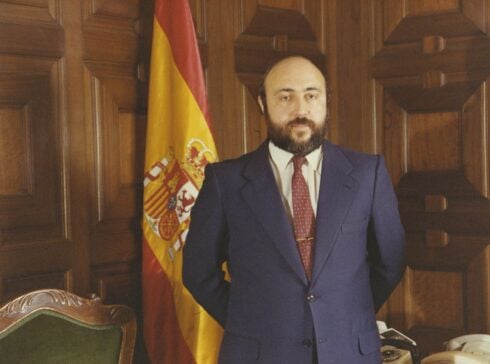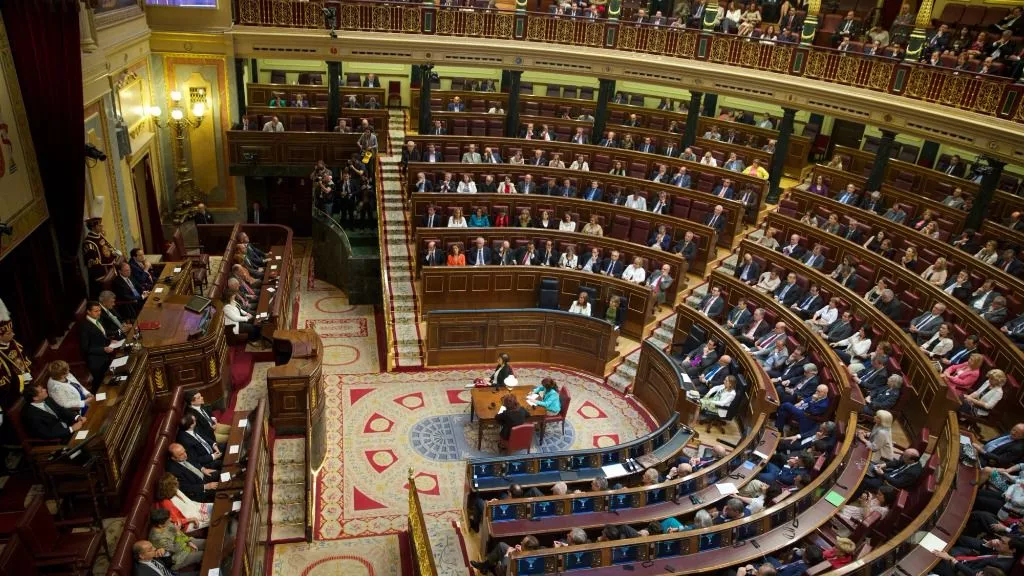NUMEROUS resignations and résumé revisions have gripped Spanish politics this summer, exposing a systemic lack of oversight when it comes to verifying elected officials’ education backgrounds.
At least three politicians have already stepped down in recent weeks after it was found that they had lied or exaggerated details in their official biographies, while several others have quickly moved to edit their public profiles.
What began with one high-profile resignation has now turned into a political headache affecting multiple parties, and raising tough questions about transparency and accountability in Spain’s politics.
A growing scandal
The most recent wave of controversy started in late July, when Noelia Nuñez, a rising figure in the conservative Popular Party (PP), was forced to resign after inconsistencies were found in three different versions of her CV, published on various websites.

She had claimed to hold a double degree in Law and Public Administration, as well as a degree in English Philology. In reality, she had not completed any of these studies.
This was quickly followed by two more resignations: Jose Maria Angel, a veteran Socialist (PSOE) and government commissioner in Valencia, and Ignacio Higuero, a former Vox member who was high up in the Junta of Extremadura under the PP.
Both were found to have made up qualifications in their official profiles.
Yet as scrutiny intensified, it became clear that these were not isolated cases. In fact, a growing list of politicians have now edited their CVs to remove unverified or non-official qualifications, sometimes years after first including them.
What the law (doesn’t) say
Under Spanish law, anyone can run for elected office regardless of their academic background. This principle of universal passive suffrage ensures that political positions are open to all citizens, regardless of their education level.
While this protects democratic access, it also has a fundamental flaw: there is no official way of verifying the truthfulness of CVs submitted by MPs or regional representatives. Politicians are typically asked to sign a sworn statement, but there’s no real system in place that can confirm their credentials.
At the national level, MPs in Congress are not even required to use a standard format to present their education or career history. Some list their full academic journey, others simply write “Law degree” with no more detail. In many cases, there’s no verification at all.
For senior government positions, such as ministers and top civil servants, there are stricter rules. The Office of Conflicts of Interest can demand official documents to back up CVs, but this only applies to appointments made by the Council of Ministers.
It does not extend to most elected officials.
Who’s been caught?
Several recent cases illustrate how common the practice has become:
- Javier Sendra, a senior official in the Valencian government and ally of regional president Carlos Mazon, listed a “Master’s in Executive Management” in his CV. In reality, it was a 140-hour course offered by a private business school.
- Pedro Rollan, president of the Spanish Senate, claimed for years to have a diploma and master’s from a private marketing school not authorised to issue official degrees. These titles have now disappeared from his Senate profile.
- Xavier Garcia Albiol, the PP mayor of Badalona, was once described as having a Law degree. His updated bio now admits he only holds a modern bachelor’s, completed through distance learning.
- Ana Millan, vice-president of the Madrid Assembly, repeatedly presented herself in campaign materials as a Political Science graduate, despite never obtaining such a degree.
In all these cases, officials have so far resisted calls to resign, arguing that the errors were due to confusion or outdated publicity materials.
By contrast, Nuñez’s resignation has been portrayed by her party as an example of integrity and responsibility, despite her having misrepresented her qualifications for years.
Why it matters
On the surface, lying about a degree may seem like a minor offense, especially when politicians are not legally required to hold one. But falsifying credentials can have serious implications, especially when they help access public roles, influence voters, or gain legitimacy as an elected representative.

In Jose Maria Angel’s case, the Valencian Anti-Fraud Agency concluded that a forged university certificate may have helped him advance as a career civil servant.
The case is now under investigation by Spain’s Anticorruption Prosecutor’s Office.
The scandals have also exposed a deep lack of transparency. Last month, eldiario.es reported that at least 20 senior officials in the Valencian regional government were in breach of transparency laws, having failed to publish proof of the academic qualifications they claimed to have.
The revelation prompted what insiders described as a wave of “panic,” with staff reportedly ordered to find and submit supporting documents urgently.
A cross-party problem
While most of the exposed cases so far have involved the Popular Party, the issue is by no means limited to a single side of the political spectrum. The Socialist PSOE and far-right Vox have also seen resignations and accusations in recent weeks.
The PP has tried to draw a line by forcing out Nuñez and launching quiet résumé edits behind the scenes.
The PSOE has accepted Angel’s resignation but accused the Valencian regional government of politically weaponising the Anti-Fraud Agency.
Meanwhile, Vox has mostly remained silent as former members like Higuero distance themselves from the party.
In the background, there are still no real consequences for officials caught lying on their CVs, no official investigations unless criminal fraud is suspected, no fines, and often, no resignations.
The bigger picture
None of this is new.
Spain’s first high-profile fake CV case dates back to the 1980s, when Luis Roldan, then head of the Civil Guard and a PSOE member, claimed to hold several degrees and a master’s.
He hadn’t even finished high school.

Later convicted for embezzlement, Roldan symbolised an era of corruption, but also set an early precedent for the misuse of academic titles in politics.
Forty years later, the system remains vulnerable, as in 2018 when scandal broke about the former president of the Community of Madrid, Cristina Cifuentes (PP).
She was accused of fraudulently obtaining her master’s degree, not having attended a single class at the King Juan Carlos University of Madrid, and the certificate she showed was found to have forged signatures.
She resigned the following month.

Until résumé checks become mandatory, and transparency laws are properly enforced, politicians will continue to exaggerate their achievements with little fear of consequence.
As the summer heat drags on, so does the scandal. There’s no way to tell if real change will be made, or if Spanish politics will simply fade back into the familiar haze of smoke, mirrors, and political ambiguity.
Click here to read more Spain News from The Olive Press.








